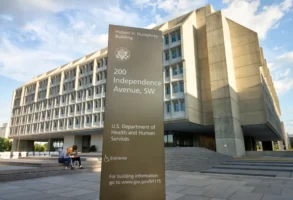Published April 6, 2016
Last week, the Supreme Court took the unusual step of asking the parties in Little Sisters of the Poor v. Burwell to submit additional briefs describing how employees might get access to no-cost contraceptives through insurance without conscripting unwilling, religiously affiliated employers into the transaction. In other words, the Court seems to be searching for a way out of another in a string of legal messes the Obama administration has created over the past five years.
The case centers on the so-called HHS mandate and the supposed “accommodation” to the mandate the administration has put forward for the Little Sisters and other similarly situated organizations (most of which are Catholic). The HHS mandate requires employers to include in their insurance offerings coverage of all contraceptives, including products that can induce early-pregnancy abortions. The mandate is not a response to a legal requirement of Obamacare. The Affordable Care Act says nothing about free contraception (if it did, that would have been one more controversy impeding its enactment). Rather, the HHS mandate is a regulatory requirement that the administration created as part of its implementation of a larger provision of law requiring coverage of “preventative services.”
From the beginning (the first rule on the mandate was issued in 2011), the administration has stubbornly refused to give Catholic hospitals, nursing homes, universities, and social-service agencies a blanket exemption from the HHS mandate, although Catholic churches and other “houses of worship” are exempt. The administration argues that too many employees work for big Catholic institutions, and that these employees would suffer from lack of free contraception. Instead of an exemption, it has pushed its “accommodation” as the answer.
The accommodation allows religiously affiliated employers who provide notification of their objections to meeting the requirements of the HHS mandate to secure insurance for their employees that excludes the objectionable products and services. The government then requires the insurance companies to notify the workers that they will get free contraceptive coverage anyway, through a special arrangement directly with the insurer. The result is therefore exactly the same as if the Little Sisters purchased insurance compliant with the HHS mandate. The employees get insurance coverage that pays for 100 percent of the cost of all contraception, including products that act as abortifacients. Put another way, it is impossible for the Little Sisters and the other plaintiffs in the case to offer health insurance to their workers that does not result in full coverage of all contraceptive products and services.
This is the fundamental problem with the administration’s accommodation — which really provides no accommodation at all. The Little Sisters know, in advance of deciding to offer health insurance to their workers, that if they do so, it will necessarily result in coverage of products and services that the Catholic Church teaches are immoral to use. This is an impossible entanglement.
The administration, of course, disagrees and says its accommodation should satisfy the conscience claims of these Catholic institutions. The Obama administration seems to believe it understands the moral obligations of the Catholic Church better than the Church does.
The Court has asked the parties in the case to react to a specific alternative approach. The Court suggests allowing insurers to offer coverage excluding the objectionable products and services, without any kind of separate notification to the government, to the employees, or to the insurers. Insurers would then separately notify the employees of these employers that they will get coverage for the excluded products and services directly from the insurer.
Some Supreme Court justices may be thinking that elimination of any notification requirement by the employer makes this approach less burdensome and therefore more acceptable than the current accommodation. They are wrong. The scheme the Court has sketched out is really no different from the current accommodation. A Catholic employer offering a health plan to its workers would know that the effect of a decision to offer insurance would result in their employees being covered by a plan that provides for free contraceptives. It doesn’t matter that it is a two-step process. The result is always the same, and there’s no way around it.
Further, there is no provision in law authorizing the administration to force insurers to offer an insurance plan to consumers who are paying them no premiums for the coverage. It would be another unlawful requirement imposed in the name of making Obamacare function. The Court should not provide sanction for such lawlessness.
The legal contortions being considered here are a signal of what’s really going on: a fundamental conflict that cannot be resolved with shell games. The Obama administration is determined to force Catholic employers to sponsor insurance plans that provide for free contraception. And the Catholic employers are just as determined to sponsor insurance plans for their workers that do not provide such coverage.
A true workaround would allow the plaintiffs to sponsor plans consistent with Catholic teaching. The federal government could then assist anyone without insurance coverage for contraception with special programs to provide access to contraceptive products and services. It is worth noting that current federal programs already provide access to contraceptives in many different ways, especially for lower-income households. Those programs could be expanded to provide broader access for the employees of exempt employers if that was seen as an important national priority.
Of course, it is fair to wonder if any of this should be the subject of so much effort by the federal government. Catholic employers have offered insurance to their employees for decades, and most of the time that insurance did not cover the kinds of products and services required by the HHS mandate. There is no evidence whatsoever that the employees of these Catholic institutions suffered unbearable harm.
Not that it matters. The HHS mandate always has been about political symbolism. The Obama administration believes objecting to the provision of free contraception is an illegitimate position: That is why the accommodation it has offered is no accommodation at all. The Court would do great harm to religious liberty if it tried to extricate itself from the controversy of this case by imposing a “solution” intended to create the perception of a compromise but which — in reality — produces the outcome the administration has been seeking all along.
— James C. Capretta is a senior fellow at the Ethics and Public Policy Center and a visiting fellow at the American Enterprise Institute.







